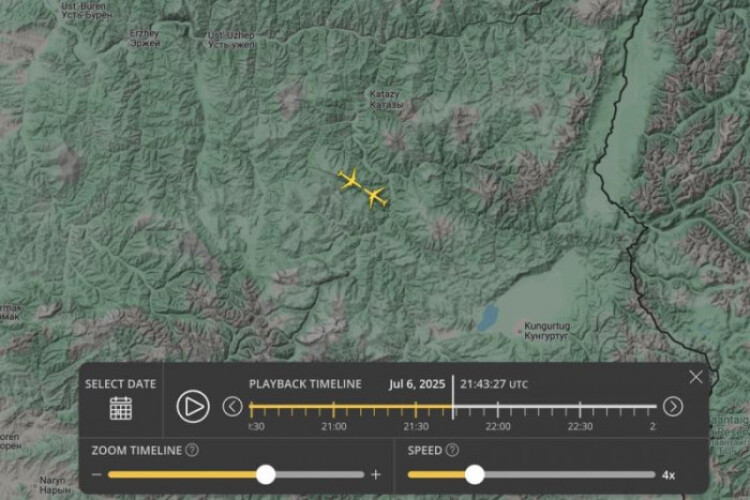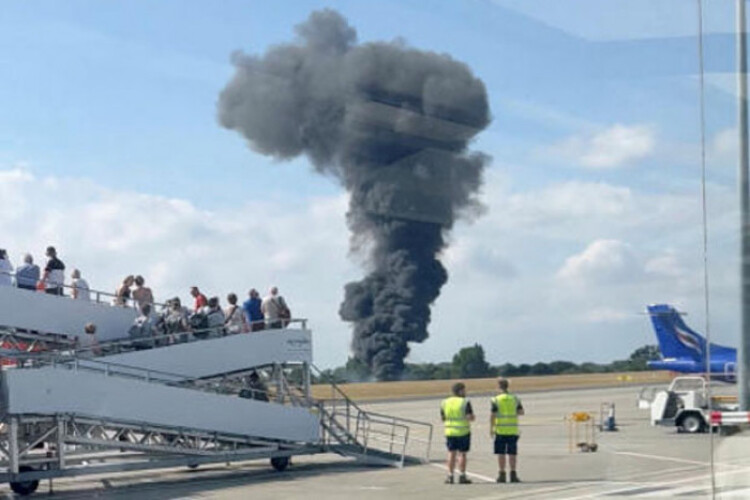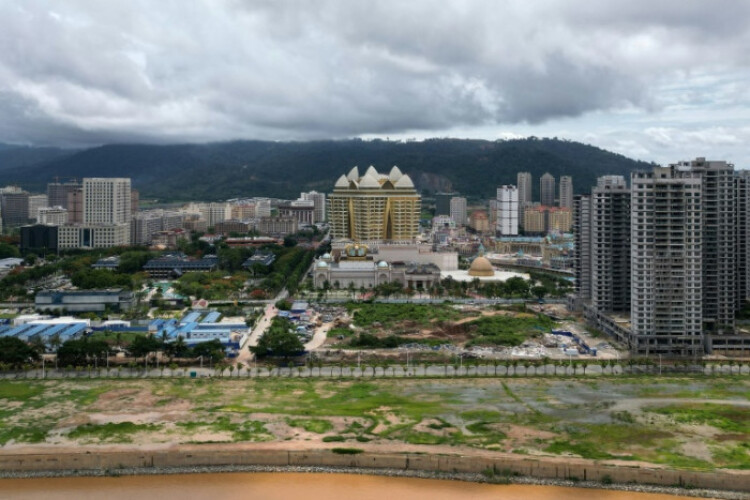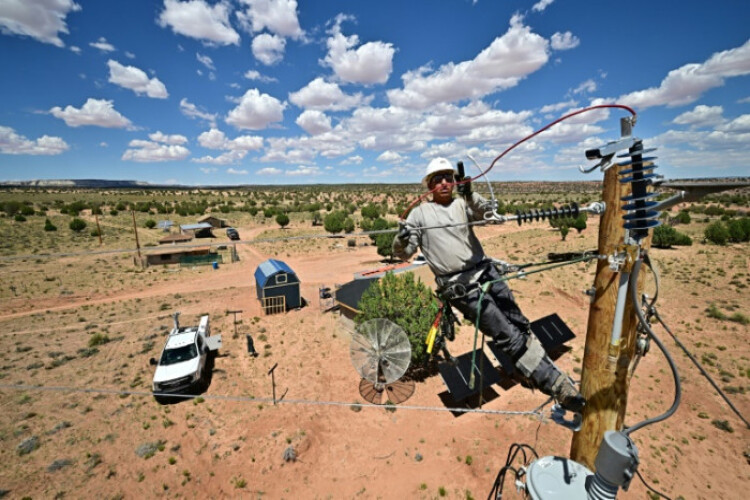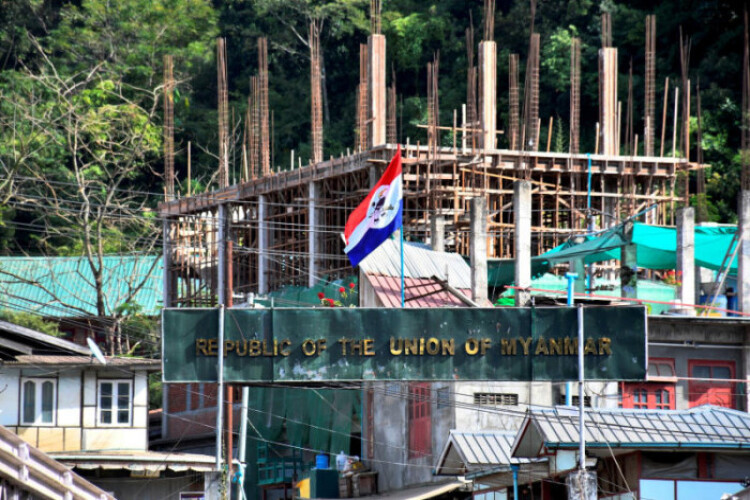
India has invited political and military opponents of Myanmar's ruling junta to attend a seminar in New Delhi, sources said, a significant move by the South Asian power that has maintained ties with the top generals shunned by Western nations.
A civil war in Myanmar since its military unseated an elected civilian government in a February 2021 coup now risks destabilising India's 1,650km (1,025 mile) border with Myanmar, and some of its key infrastructure projects there.
A leader of an armed group and two sources with direct knowledge of the issue said the parallel National Unity Government (NUG) and ethnic minority rebels from the states of Chin, Rakhine and Kachin bordering India had been invited to a seminar in mid-November.
The event would be hosted by the government-funded Indian Council of World Affairs (ICWA), whose council includes India's Foreign Minister S. Jaishankar, said two other sources, who spoke on condition of anonymity as the matter was confidential.
It was not immediately clear if Myanmar's military government would also be invited to the event, which the sources said would be on the topic of "Constitutionalism and Federalism". They gave no further details.
Widespread protest in Myanmar over the 2021 coup turned into a nationwide rebellion, with an armed resistance movement combining with some established ethnic armies to seize control of wide swathes of territory from the military.
The junta has refused to enter into dialogue with the rebels, whom it describes as "terrorists".
Speaking of the seminar, Sui Khar, vice chairman of one the ethnic rebel groups, the Chin National Front, said, "We are going to send representatives."
"This will be the first time, I think, formally, that India will engage with the non-state actors. This is a good, positive approach."
A spokesperson for Myanmar's military did not answer telephone calls to seek comment. The Indian government and the ICWA did not immediately respond to requests for comment.
The other armed groups invited include the Arakan Army, which controls significant reaches of territory in Rakhine bordering Bangladesh, and the Kachin Independence Army (KIA), one of Myanmar's most powerful rebel forces, the sources added.
A spokesperson for the president of the shadow NUG government declined to comment on the seminar. The Arakan Army and KIA did not immediately respond to requests for comment.
Although the junta has been condemned by Western powers, with most of them having imposed sanctions, India has kept up engagement with the generals through visits to the capital, Naypyitaw, by its government and defence officials.
India has been reluctant to openly criticise the junta, which could push the generals closer to rival China. New Delhi has had no formal engagement with the junta's opponents.
It was not immediately clear what the seminar would seek to achieve or why India has made the move.
In June, Foreign Minister Jaishankar voiced concern about border instability and the security risks to India's projects in Myanmar. India was "open to engaging all stakeholders in addressing this situation," he told his Myanmar counterpart.
India is involved in developing the $400-million Kaladan port and highway project in Myanmar's west, as well as providing about $250 million for another road project to link its landlocked northeastern states with Thailand, via Myanmar.
The seminar plan comes amid a peace effort by the ASEAN grouping of Southeast Asian nations that has made scant progress since its unveiling in April 2021, as some ASEAN nations have been vexed by the junta's refusal of talks.
Last year, former ASEAN chair Indonesia said it had received positive signals about preliminary dialogue from major parties in the conflict, but there have been no signs advancement yet.
The November meeting would represent New Delhi's most serious effort to approach Myanmar's "pro-democracy side" since the 2021 coup, said Angshuman Choudhury, a Singapore-based researcher who closely tracks India-Myanmar affairs.
"We also need to see ... whether it is meant to achieve specific foreign policy outcomes or simply relay a signal to the Myanmar military to step back," he said.
"India remains concerned about the security and stability of its borders."
A civil war in Myanmar since its military unseated an elected civilian government in a February 2021 coup now risks destabilising India's 1,650km (1,025 mile) border with Myanmar, and some of its key infrastructure projects there.
A leader of an armed group and two sources with direct knowledge of the issue said the parallel National Unity Government (NUG) and ethnic minority rebels from the states of Chin, Rakhine and Kachin bordering India had been invited to a seminar in mid-November.
The event would be hosted by the government-funded Indian Council of World Affairs (ICWA), whose council includes India's Foreign Minister S. Jaishankar, said two other sources, who spoke on condition of anonymity as the matter was confidential.
It was not immediately clear if Myanmar's military government would also be invited to the event, which the sources said would be on the topic of "Constitutionalism and Federalism". They gave no further details.
Widespread protest in Myanmar over the 2021 coup turned into a nationwide rebellion, with an armed resistance movement combining with some established ethnic armies to seize control of wide swathes of territory from the military.
The junta has refused to enter into dialogue with the rebels, whom it describes as "terrorists".
Speaking of the seminar, Sui Khar, vice chairman of one the ethnic rebel groups, the Chin National Front, said, "We are going to send representatives."
"This will be the first time, I think, formally, that India will engage with the non-state actors. This is a good, positive approach."
A spokesperson for Myanmar's military did not answer telephone calls to seek comment. The Indian government and the ICWA did not immediately respond to requests for comment.
The other armed groups invited include the Arakan Army, which controls significant reaches of territory in Rakhine bordering Bangladesh, and the Kachin Independence Army (KIA), one of Myanmar's most powerful rebel forces, the sources added.
A spokesperson for the president of the shadow NUG government declined to comment on the seminar. The Arakan Army and KIA did not immediately respond to requests for comment.
Although the junta has been condemned by Western powers, with most of them having imposed sanctions, India has kept up engagement with the generals through visits to the capital, Naypyitaw, by its government and defence officials.
India has been reluctant to openly criticise the junta, which could push the generals closer to rival China. New Delhi has had no formal engagement with the junta's opponents.
It was not immediately clear what the seminar would seek to achieve or why India has made the move.
In June, Foreign Minister Jaishankar voiced concern about border instability and the security risks to India's projects in Myanmar. India was "open to engaging all stakeholders in addressing this situation," he told his Myanmar counterpart.
India is involved in developing the $400-million Kaladan port and highway project in Myanmar's west, as well as providing about $250 million for another road project to link its landlocked northeastern states with Thailand, via Myanmar.
The seminar plan comes amid a peace effort by the ASEAN grouping of Southeast Asian nations that has made scant progress since its unveiling in April 2021, as some ASEAN nations have been vexed by the junta's refusal of talks.
Last year, former ASEAN chair Indonesia said it had received positive signals about preliminary dialogue from major parties in the conflict, but there have been no signs advancement yet.
The November meeting would represent New Delhi's most serious effort to approach Myanmar's "pro-democracy side" since the 2021 coup, said Angshuman Choudhury, a Singapore-based researcher who closely tracks India-Myanmar affairs.
"We also need to see ... whether it is meant to achieve specific foreign policy outcomes or simply relay a signal to the Myanmar military to step back," he said.
"India remains concerned about the security and stability of its borders."



